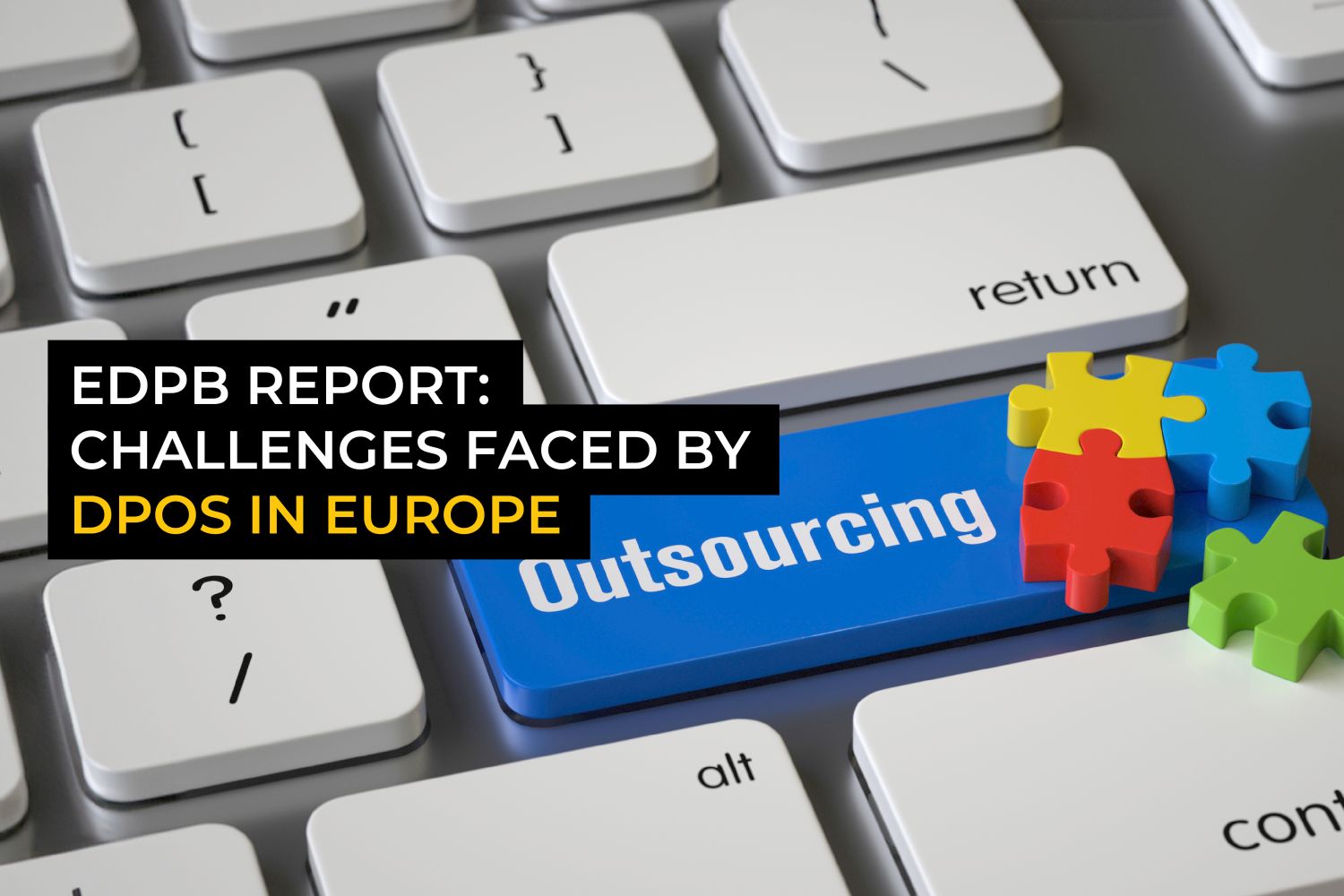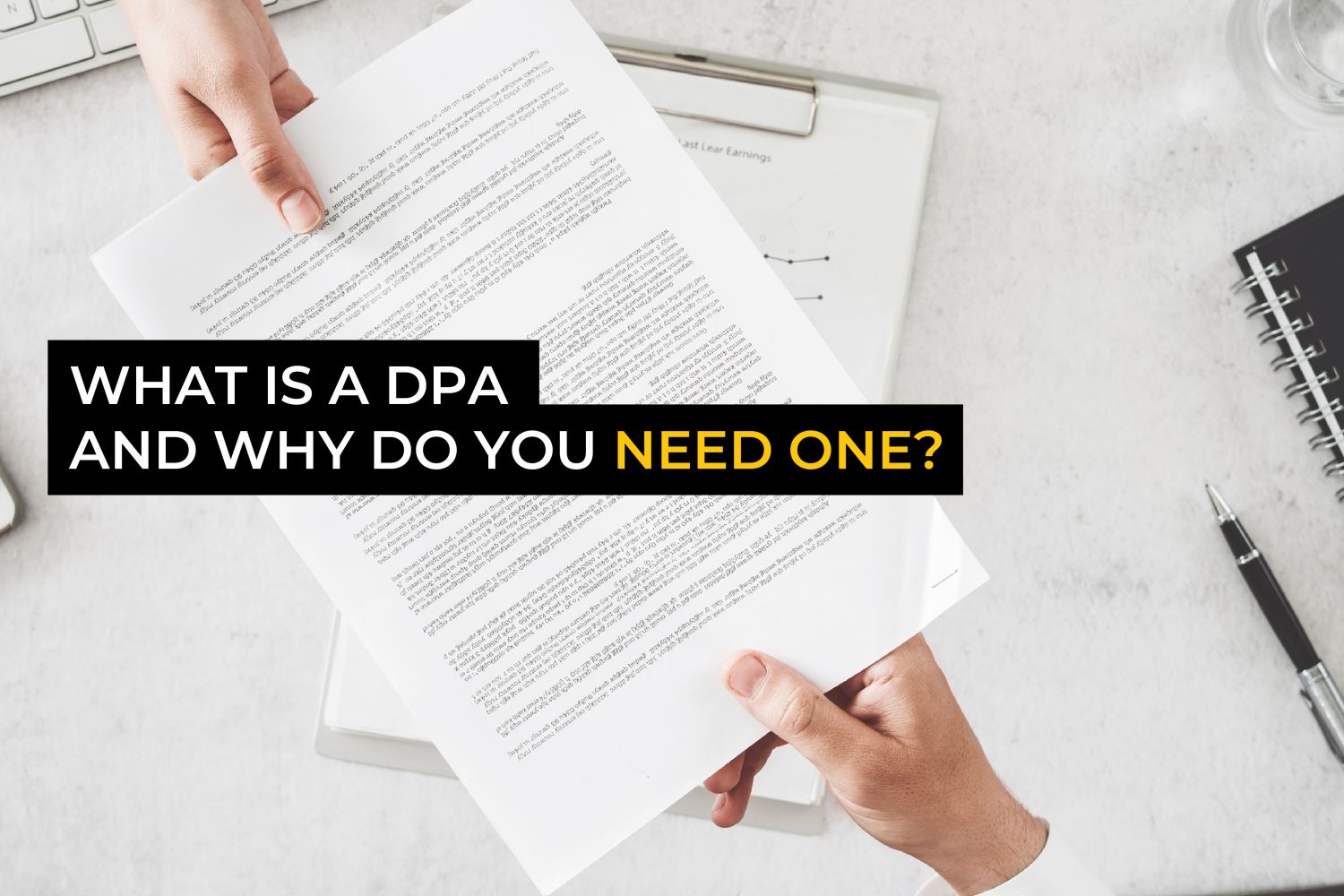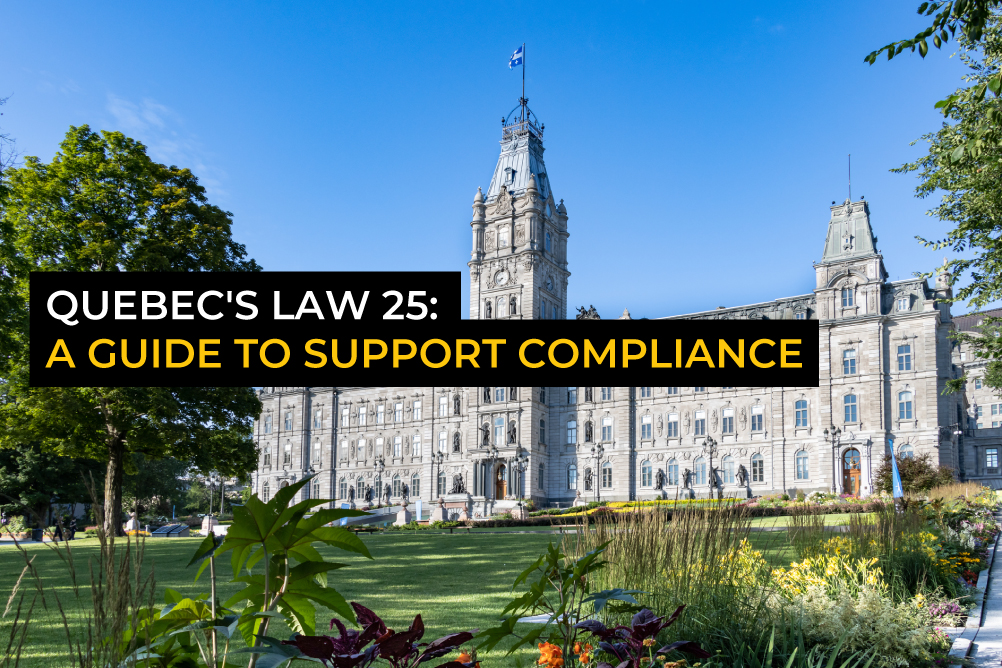Enquire
- Contact The DPO Centre
- +44 (0)203 797 1289
- hello@dpocentre.com

EDPB Report: Challenges faced by DPOs in Europe
March 4, 2024
How to identify a phishing email: Safeguarding your organisation
April 1, 2024A Data Processing Agreement (DPA), also called a Data Processor Agreement, is a legally binding contract between a data controllerAn entity (such as an organisation) which determines the purposes and means of the processing of personal data. (usually your organisation) and a data processorA third party processing personal data on behalf of a data controller. (usually a third-party service provider).
A quick reminder:
Data controllers determine how and why personal dataInformation which relates to an identified or identifiable natural person. is processed.
Data processors provide a service to the data controller and process personal data strictly under the controller’s instructions as part of that service.
In this blog, we explore the reasons why you need a DPA and some of the common misconceptions organisations have about using them. We also provide some practical information about what you should include in your DPAs.
Whether you’re a large multinational corporation or a small startup, a data controller or a data processor, understanding the essentials of a DPA is vital for responsible data processing and compliance with data protection laws.
Why do you need a DPA?
Legal compliance is the primary reason for a Data Processing Agreement (DPA).
A DPA is mandatory in the UK and all EU countries, although not in all jurisdictions around the world. A DPA is a necessary requirement between controllers and processors operating under the General Data Protection RegulationRegulation (EU) 2016/679 of the European Parliament and of the Council of 27 April 2016 on the protection of natural persons with regard to the processing of personal data and on the free movement of such data (General Data Protection Regulation). (GDPR) in accordance with Article 28.
Therefore, if your organisation is considered a data controller or a data processor and you processA series of actions or steps taken in order to achieve a particular end. the data of EU or UK-based individuals, you must have a DPA in place.
Read about controllers, processors and GDPR compliance here
Risk minimisation is a key benefit of a DPA.
Organisations can minimise the impact of data breaches or unauthorised access by having clear definitions of controller and processor roles, including responsibilities and obligations, data processing procedures, security measures and data subject rightsUnder UK and EU data protection regulation, data subjects have a number of rights available to them, including the right to be informed, access, rectification, erasure, restrict processing, data portability, to object and further rights in relation to automated decision making and profiling.. A DPA is an essential component of a robust framework for responsible data handling.
Additional information about data breach management
Individual rights protection is the fundamental basis for data protection laws. A DPA demonstrates how your organisation protects the rights of individuals through clearly defined processes and accountabilities.
StakeholderAn individual with an interest or concern in something (i.e. a Social Worker, Healthcare Professional, Headteacher etc. in respect of the welfare of a child). trust building is an important aspect of data protection. Transparency fosters trust, and a DPA ensures transparency by detailing security measures and data processing protocols.
Collaboration enhancement is an additional advantage of having a comprehensive and well-thought-out DPA. When both parties understand their respective obligations, a collaborative environment develops, which strengthens efficient data processing.
Long-term business relationships work best when there is trust and the roles of each party are transparent and clearly defined. A DPA can help support your long-term business relationships.
Common misconceptions about DPAs

Key elements of a DPA
DPAs can vary in content, depending on the specific context and requirements of each data processing arrangement. However, there are certain details you must include in every agreement.
Here is a helpful overview of the essential content to include in your DPA:
| ESSENTIAL DPA CONTENT | DESCRIPTION |
| Must be a contract or other legal act that is binding |
|
| Subject matter and duration of processing |
|
| Nature and purpose of data processing |
|
| Categories of data subjects |
|
| Types of personal data |
|
| Obligations & responsibilities |
|
| Technical and organisational measures |
|
| International data transfers |
|
| Data retentionData retention refers to the period for which records are kept and when they should be destroyed. Under the General Data Protection Regulation (GDPR), data retention is a key element of the storage limitation principle, which states that personal data must not be kept for longer than necessary for the purposes for which the personal data are processed. and deletion |
|
| Use of sub-processors |
|
Using a template DPA
There are several generic template DPAs available online for organisations to use.
The DPO Centre has a FREE GDPR Policy Toolkit that includes a Data Processing Agreement Template.
Templates are a useful starting point for organisations, but we recommend you take professional advice before publication.
Do not use a template DPA in its generic form.
Data Processing Agreements must address the specific needs, legal requirements, and risks of individual data controller and processor relationships. Therefore, a template should be tailored to accurately reflect the unique context of each organisation’s data processing activities.
Updated 7th June 2024
______________________________________________________________________________________________________________________________
In case you missed it…
- GDPR advice for SaaS companies entering EU and UK markets
- International data transfers: SCCs, UK Addendum & UK IDTA
- Data Retention and the GDPR: Best practices for compliance
______________________________________________________________________________________________________________________________
The DPO Centre provides a wide range of outsourced data protection services, including Data Protection Officers (DPOs), EU and UK GDPRThe UK General Data Protection Regulation. Before leaving the EU, the UK transposed the GDPR into UK law through the Data Protection Act 2018. This became the UK GDPR on 1st January 2021 when the UK formally exited the EU. Representatives.
Our experienced DPOs work with organisations across the span of industry sectors to implement best practices and ensure compliance with data protection laws.
For more news and insights about data protection follow The DPO Centre on LinkedIn
Fill in your details below and we’ll get back to you as soon as possible




